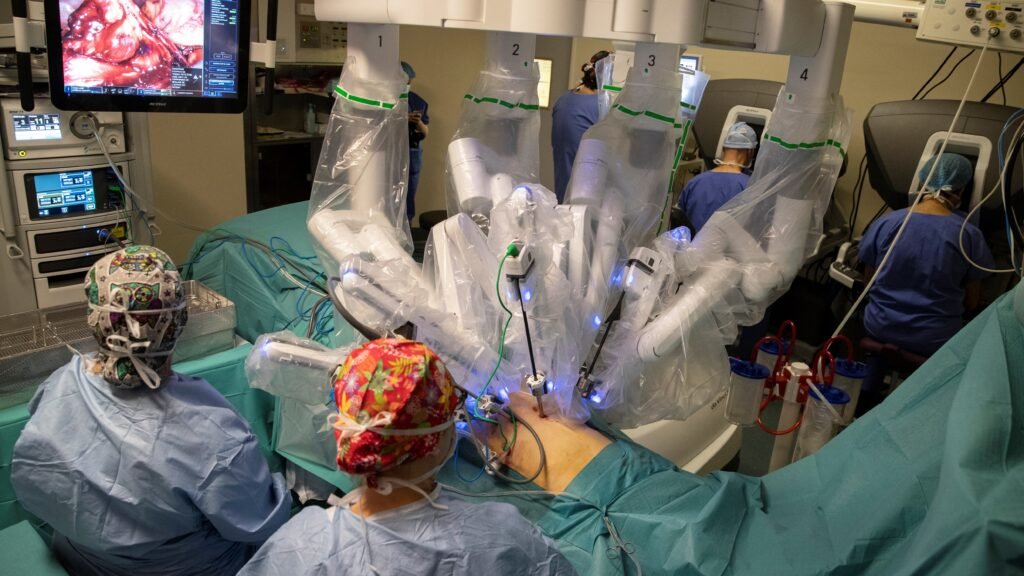President Trump’s tariffs are having a significant impact on the medical device industry, with individual firms and diagnostic companies facing hundreds of millions of dollars in additional costs. While some of the largest manufacturers are finding ways to navigate these challenges, smaller companies are feeling the pinch.
Boston Scientific, a prominent medical device manufacturer, has stated that it expects to offset $200 million in tariffs this year through a combination of increased sales and cost-cutting measures. Similarly, Intuitive Surgical, known for its da Vinci surgical robot system, saw its stock price rise after announcing that its products manufactured in Mexico would not be subject to tariffs. Despite facing a total tariff hit of $165 million this year, representing 1.7% of its annual revenue, Intuitive Surgical has managed to mitigate the impact better than anticipated.
On the other hand, some companies, like Resmed, have been able to avoid the negative effects of tariffs altogether. Resmed recently announced that its sleep apnea machines will continue to be tariff-free, thanks to a little-known exemption granted by the U.S. Customs and Border Protection.
The overall impact of these tariffs on the medical device industry remains a topic of concern and discussion. While larger companies are finding ways to navigate the challenges posed by tariffs, smaller firms may face greater difficulties in absorbing the additional costs. It is essential for companies in the medical device sector to carefully evaluate their strategies and explore innovative solutions to mitigate the impact of tariffs on their operations.
As the industry continues to adapt to the changing landscape of trade policies and regulations, it is crucial for companies to remain agile and proactive in their approach. By staying informed and proactive, medical device manufacturers can position themselves to navigate the challenges posed by tariffs and continue to thrive in a competitive market environment.


